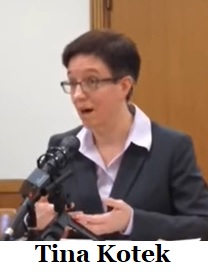How the people of Oregon have voted themselves out of power

On November 6th of 2012 the Voters of Oregon passed measure 77, the ballot title and summary were written by then Secretary of State Kate Brown, and Treasurer Ted Wheeler. The measure amended the State Constitution to grant emergency powers to the Governor and the Legislature during a period of time defined as a "Catastrophic Disaster", defined here as; a natural or human-caused event
resulting in extraordinary levels of death, injury, property damage or disruption of daily life and severely affecting the population, infrastructure, environment, economy or government of Oregon. The terms “extraordinary levels†and “severely affects†are not defined (emphasis added). Examples include, but are not limited to, acts of terrorism, earthquakes, floods, public health emergencies, tsunamis, volcanic eruptions and war. If the Governor declares that a catastrophic disaster has occurred, the Governor may manage immediate response to the disaster by:
- Redirecting general fund moneys for state agencies.
- Using only lottery funds allocated to state agencies.
If the Governor declares that a catastrophic disaster has occurred, the Governor also must convene the Legislature
within 30 days. The Legislature may:
- Meet at a place other than the Capitol or by electronic means.
- Conduct business and suspend rules with two-thirds of the members able to attend, instead of two-thirds of all members.
- Pass bills with three-fifths of the members who are able to attend, instead of a majority of all members.
- Pass tax bills that take effect upon passage instead of 90 days after the Legislature adjourns.
The Legislature may take additional actions otherwise prohibited by the Oregon Constitution and are limited to actions
necessary to implement immediate response and aid in recovery. The Legislature may:
- Spend State Highway Fund moneys (gas taxes) for any purpose.
- Spend moneys that otherwise would go to individual and corporate tax “kicker†refunds by vote of 2/3 of members able to attend.
- Exceed the state debt limit.
- Override funding of local mandate provisions.
- Spend any lottery funds.
Speaker of the House Tina Kotek -D Portland, is
calling on Governor Kate Brown to declare a "Catastrophic Disaster", and bring the legislature into a special session this December. In Kotek's press release, she states "The COVID-19 pandemic is raging like never before in Oregon. Our economic recovery is fully dependent on getting this virus under control". Side Note: "Under control" has been further defined as a need for federal aid, and vaccine administration in other statements.
A D V E R T I S E M E N T
A D V E R T I S E M E N T
A special session can be called at any time by the Governor, or a majority in both chambers is also authorized to organize a special session. So why is it so important to declare a "Catastrophic Disaster"? As outlined above, during a catastrophic disaster, quorum requirements relax, making, previously seen, pushback against
poorly written and ill conceived bills, impossible. In addition to blocking pushback from the minority party, a declared catastrophic disaster would also allow the legislature to spend kicker checks, (typically refunded to overcharged taxpayers) spend the lottery funds, spend the highway fund, and if that's not enough, exceed the debt limit allowed to the state.
How did we allow this to happen, you might be asking? According to Justin Brecht the Senate Minority Senior Policy Analyst
"Ballot titles and the description are often confusing, and written by the supermajority".
The legislature has been criticized for crying wolf on emergencies. In 2016, measure 88 failed to gather enough signatures to make the ballot. The measure would have ended the overused "Emergency Clause". No act shall take effect,†stipulates Oregon’s constitution, “until ninety days from the end of the session at which the same shall have been passed, except in case of emergency; which emergency shall be declared in ... the law.†Why wait 90 days? 90 days is the amount of time needed to gather signatures in order to overturn a bill by the referendum process. Webster’s defines “emergency†as “an urgent need for assistance or relief, yet by 2012 seventy one percent of all bills passed, did so with an Emergency Clause, ranging from bills to allow unionization of workplaces via “check-off cards†(2007); to credential undocumented immigrants for in-state university tuition (2013); and even to replace the U.S. Capitol statue of Oregon pioneer Jason Lee with one of the late U.S. Sen. Mark Hatfield (2014).
With historical abuse of Emergencies, it's fair to ask, Are we actually dealing with an emergency, or are we looking at just another power grab?
A new effort to
curb abuse of emergencies in the legislature is now circulating, in hopes of returning the constitutionally guaranteed right of the referendum process, to the voters.
--Breeauna Sagdal| Post Date: 2020-11-22 03:24:12 | Last Update: 2020-11-23 15:45:55 |






